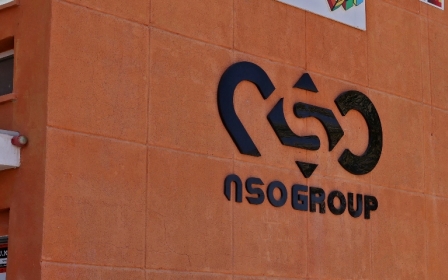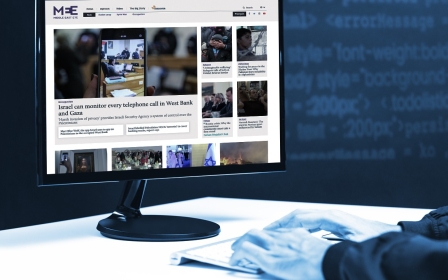Israeli spyware sold to Bangladesh despite export ban

A company run by a former Israeli intelligence commander sold advanced spyware equipment to Bangladesh last year, despite a ban on defence and surveillance exports to Dhaka, a Haaretz investigation revealed on Tuesday.
Passitora, a Cyprus-based company controlled by Israeli businessman and former intelligence commander Tal Dilian, sold the equipment to a branch of the Bangladeshi Interior Ministry last year.
The equipment, said to be able to intercept calls, texts and internet traffic, was sold to the National Telecommunication Monitoring Centre (NTMC), which is responsible for the surveillance of internet and social media.
Bangladesh does not recognise Israel and the two countries have no diplomatic relations.
Dilian’s company, formerly called WiSpear, has been previously involved in a scandal in Cyprus, after a Forbes documentary showed how they use its SpearHead system to extract private data from people’s phones. Allegations against Dilian were dropped, but WiSpear was fined one million euros at the time for unlawfully extracting data from people’s devices.
New MEE newsletter: Jerusalem Dispatch
Sign up to get the latest insights and analysis on Israel-Palestine, alongside Turkey Unpacked and other MEE newsletters
Now called Passitora, the company is part of Intellexa Alliance, an umbrella firm owned by Dilian under which a network of companies sell spyware and surveillance technologies to governments around the world, including to a notorious militia in Sudan.
The Israeli government said that it has no oversight of the activities of such surveillance companies, according to sources cited by Haaretz.
A Bangladeshi knack for Israeli spyware
Despite a ban on receiving bids from Israel’s government or companies, it appears Bangladesh continues to buy surveillance capabilities from Israeli-affiliated firms. The Israeli government reportedly has a list of approved countries with which its defence establishment allows for exports with, and Bangladesh is not on it.
Haaretz has previously shown how Israeli company Cellebrite sold spyware to a Bangladeshi police unit called the Rapid Action Battalion, which is known to have a poor human rights record. Similarly, Israeli company Picsix also sold phone surveillance capabilities to Bangladesh’s military intelligence.
Bangladeshi government agencies involved in human rights violations have bought such hacking tools from Israeli companies or foreign companies with direct links to Israel that have acted as middlemen in deals.
“Bangladesh isn’t capable of providing its citizens with basic infrastructure, but government agencies enjoy the best modern spy technology money can buy," Zulkarnain Saer Khan, a Bangladeshi journalist who now lives in exile, told Haaretz.
"Draconian laws have turned it into the government’s preferred weapon for silencing and intimidating journalists, critics and political activists. Negative propaganda against the father of the nation - the father of the current prime minister - can end in 14 years in prison.”
The Interior Ministry’s NTMC agency was created in 2013 to intercept citizens, opposition officials and protesters, and was called by one of its senior officials to be “the government’s largest legal interception system”.
The agency’s director, Major General Ziaul Ahsan previously worked in intelligence for the Rapid Action Battalion and was responsible for many disappearances in the country.
Bangladesh has previously detained and tortured journalists for reporting and criticising the government.
Middle East Eye delivers independent and unrivalled coverage and analysis of the Middle East, North Africa and beyond. To learn more about republishing this content and the associated fees, please fill out this form. More about MEE can be found here.





